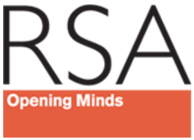QUALIFICATIONS
|
In primary school, the learners have an experience equivalent to most other English primary schools in the sense that they will have a single teacher for all subjects, and the content will come from the English National Curriculum adapted using the outcome of - The Independent Review of the Primary Curriculum -
Drama & Movie productions as well as World Cultures and Languages are used as motivational catalysts to enable learners to be prepared progressively for their end of Key Stage 2 test. The aim will be to have them attain National Curriculum level 4 in English, Math and Science by the end of Year 5, before starting Preparatory school. Learners are only expected to move to Preparatory school after 5 years (5 to 9 years old). However, their level can be evaluated earlier if they feel ready. Depending on the outcome from an academic and emotional viewpoint, they can move stage faster. The same goes if they feel like an extra year in primary school could be beneficial. In all cases, the decision will be taken after consultation of parents and teachers. |
Preparatory school is meant to last 2 years (10 to 12 years old) but encompasses the same level of flexibility. The teaching takes place following the RSA Opening Minds Curriculum.
The National Curriculum core subjects, English inc. Classical Literature, Math and Science plus Humanities and World Languages (inc. Latin and/or Greek if qualified teacher found) is taught by specialist teachers. Each of the five teachers is also responsible for facilitating the other subjects (Art, Design and Technology, Music, Physical Education and “Citizenship”) to their respective “home class”. The subsequent potentially reduced class size (circa 15 learners) and increased level of contact time, is there to ensure that there is a strong bound between each teacher and their learners. Depending on their abilities and results, some learners may start working towards obtaining some GCSEs in a UK inspired education model. |
Once they reached secondary school, learners will spend three years to obtain the following GCSEs:
English Baccalaureate Exam
Learners will be expected to pass their GCSE in English, Math, Science, Humanities and Languages. In addition, the GCSE Computing is offered to stretch the most interested and gifted learners in ICT, and a more vocational approach through OCR Accredited Vendor Courses (Microsoft Academy & Adobe Digital Career) for the others.
Diplomas
The Diploma in “Information Technology”, “Business & communication”, “Creative & Media”, “Sport & Active Leisure” will offer the opportunity to the learners to get GCSE equivalents in the other subjects. The diplomas have been chosen due to the responsibilities given to the pupils for their own learning and the higher level and independence required. In addition, the diplomas enable the Connected Schools to focus on the core strength of their team of teachers while working in partnership with other schools and businesses to provide the rest of the knowledge required to obtain the qualification. Each of the Secondary teachers would be in charge of a group of 14-16 learners taking the diploma which is the closest to their specialist subject to make sure that the learners are well guided and guaranteed a successful outcome.
International Baccalaureate
After leaving Secondary schools, the majority of learners are 15 or 16 years old, and they are more than ready to take on the challenges offered by A Levels, the International Baccalaureate or even apprenticeships. By the time the first intake gets there, the school will have acquired the required accreditations to offer the IB.
English Baccalaureate Exam
Learners will be expected to pass their GCSE in English, Math, Science, Humanities and Languages. In addition, the GCSE Computing is offered to stretch the most interested and gifted learners in ICT, and a more vocational approach through OCR Accredited Vendor Courses (Microsoft Academy & Adobe Digital Career) for the others.
Diplomas
The Diploma in “Information Technology”, “Business & communication”, “Creative & Media”, “Sport & Active Leisure” will offer the opportunity to the learners to get GCSE equivalents in the other subjects. The diplomas have been chosen due to the responsibilities given to the pupils for their own learning and the higher level and independence required. In addition, the diplomas enable the Connected Schools to focus on the core strength of their team of teachers while working in partnership with other schools and businesses to provide the rest of the knowledge required to obtain the qualification. Each of the Secondary teachers would be in charge of a group of 14-16 learners taking the diploma which is the closest to their specialist subject to make sure that the learners are well guided and guaranteed a successful outcome.
International Baccalaureate
After leaving Secondary schools, the majority of learners are 15 or 16 years old, and they are more than ready to take on the challenges offered by A Levels, the International Baccalaureate or even apprenticeships. By the time the first intake gets there, the school will have acquired the required accreditations to offer the IB.


